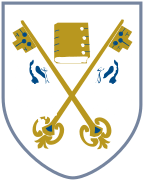We are excited to share insights from our Head of EAL Mr. Jason Hung, who brings a wealth of experience and a passionate approach to English as an Additional Language (EAL) education. Below, he discusses his philosophy, essential elements of an effective EAL program, plans for enhancing language proficiency and cultural integration among pupils, and the role of extracurricular activities in language learning.
Q: How would you describe your philosophy towards EAL education?
A: Although the very core of being a successful EAL teacher is rooted in pupil-centred, deep empathy, care, and passion, effective EAL education extends beyond these humanistic qualities. It involves a solid grounding in methodology, an awareness of language levels, and a clear understanding of effectively selecting, organising, and retaining learning objectives. EAL teaching offers the opportunity to help pupils holistically, not just with language features, but by assisting them to value themselves more, develop learning skills that transcend other subjects, and unlock their future pathways.
Q: What do you believe are the essential elements of an effective EAL program in a school?
A: An effective EAL program should be inclusive, extending beyond the domain of a few EAL teachers. It should enable pupils to learn English in ways that go beyond accessing simple curriculum parts, integrating best practices across all teaching levels. EAL principles must be utilized by all teachers, ensuring a cohesive and supportive learning environment. This approach helps in developing not just language proficiency but also academic and social skills necessary for pupils’ overall success.
Q: How do you plan to enhance language proficiency and cultural integration among pupils?
A: I am particularly excited to collaborate closely with the English department to elevate English literacy and language proficiency. Outside the classroom, I see great potential in leveraging the school’s rich calendar of events to bring pupils together culturally.
Q: How do extracurricular activities fit into the overall EAL strategy?
A: Extracurricular activities are crucial for language retention and practical application. They offer pupils opportunities to use English in different settings, reducing the stress associated with classroom learning. Activities like debating, Model United Nations (MUN), and enterprise projects also provide valuable platforms for pupils to blend their English development with other interests, thereby enhancing their language skills and confidence.
Our Head of EAL Mr. Jason Hung brings over two decades of extensive experience in EAL teaching. His career began in Brighton, England, and significantly advanced in Kazakhstan, where he played a pivotal role in establishing Haileybury Almaty and Haileybury Astana. At Haileybury Astana, he spent nearly a decade as Head of EAL and Head of Middle School. More recently, he founded and led the EAL department at King’s College International School Bangkok, achieving Gold Standard BSO accreditation. His diverse experience includes leadership roles in prestigious UK summer schools such as Bloxham, Cobham Hall, and Wellington College. We are thrilled to have him lead our EAL program at Brighton College Vietnam.



